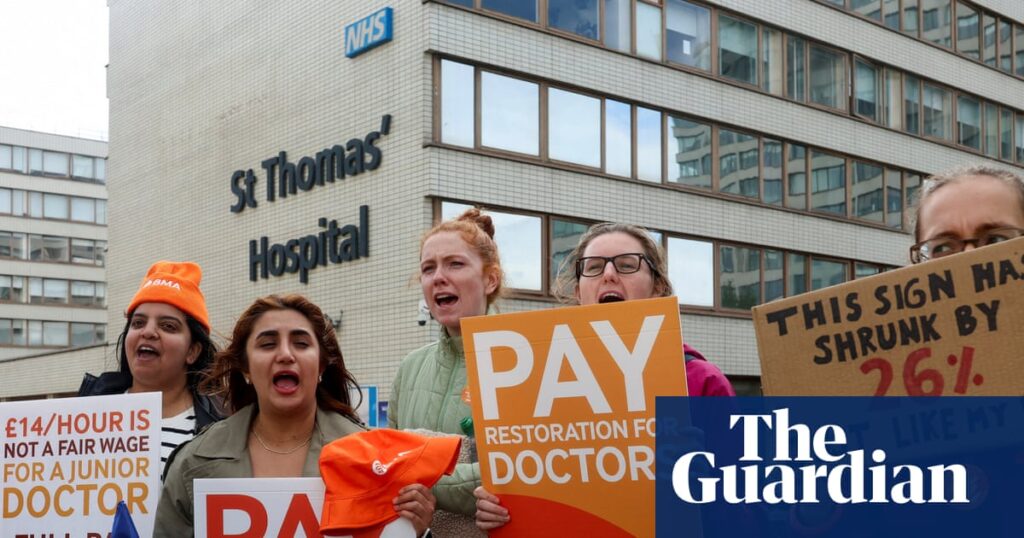Resident doctors in England have begun strike action after the British Medical Association and government failed to reach an agreement over pay restoration.
Up to 50,000 people went on strike at 7am, with the action intended to last for five days until 7am on Wednesday 30 July.
The public have been urged to keep coming forward for NHS care during the strike. GP surgeries were open as usual and urgent care and A&E would continue to be available, alongside 111, NHS England said.
Keir Starmer made a last-minute appeal to resident doctors, saying the strikes would “cause real damage”.
“The route the BMA resident doctors committee have chosen will mean everyone loses. My appeal to resident doctors is this: do not follow the BMA leadership down this damaging road. Our NHS and your patients need you,” he wrote in the Times. “Most people do not support these strikes. They know they will cause real damage.”
There has been acrimony for weeks between NHS bosses and the BMA, which has argued that resident doctors – formerly known as junior doctors – have seen their pay fall by a much greater amount in real terms since 2008-9 than the rest of the population. They are demanding a 29% pay rise that they say would restore salaries that have been eroded over the past decade.
The health secretary, Wes Streeting, had warned that the industrial action “enormously undermines the entire trade union movement”.
In an article for the Guardian on Thursday, Streeting said the decision by the BMA to push for new strikes immediately after receiving a pay rise of 22% to cover 2023-24 and 2024-25 was unreasonable and unprecedented.
The health secretary also sent a personal letter to resident doctors saying: “I deeply regret the position we now find ourselves in.” He added that that while he could not pledge a bigger pay rise, he was committed to progress to improve their working lives.
The BMA has taken out national newspaper adverts saying it wants to “lay bare the significant pay difference between a resident doctor and their non-medically qualified assistants”.
It said the adverts “make clear that while a newly qualified doctor’s assistant is taking home over £24 per hour, a newly qualified doctor with years of medical school experience is on just £18.62 per hour”.
The BMA said Streeting and his officials had refused to continue talks across the strike days and the minister’s letter to them “amounted to nothing more than vague promises on non-pay issues”.
Speaking on BBC Radio 4’s Today Programme, the BMA’s chair, Tom Dolphin, said: “It’s very disappointing to see a Labour government taking such a hard line against trade unions. The settlement last year was a good move by the Labour government. The problem is they’ve gone back on their position since then.
“They’re talking about punishing the trade union, talking about punishing doctors, holding them back in their training, making sure that they don’t get locum shifts, that kind of thing.
“People are talking about that which, of course, you know it’s not legal, and if we find cases of people being held to detriment having taken part in strikes, we’ll be fighting their case for them. It’s just disappointing to hear that kind of rhetoric coming from a Labour administration.”


